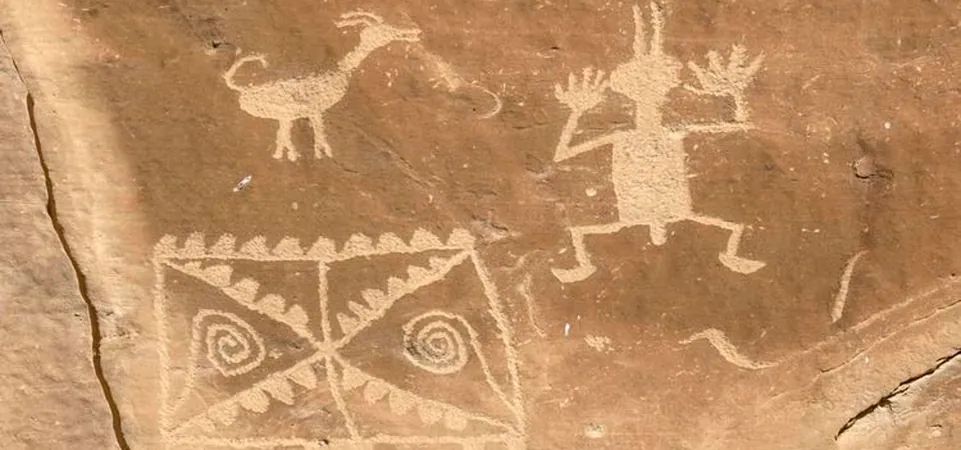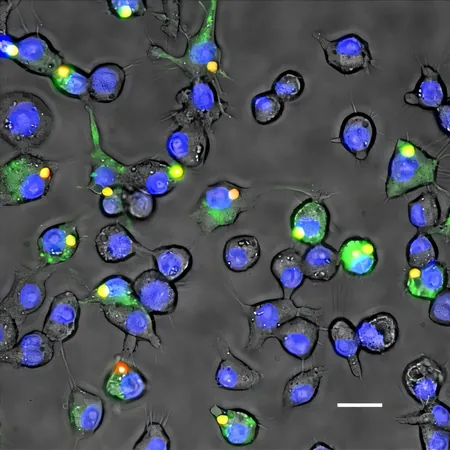
Controversy Erupts as Folk Icon Buffy Sainte-Marie's Awards Revoked After Heritage Revelation
2025-03-13
Author: Michael
In a shocking turn of events, legendary folk singer Buffy Sainte-Marie has had several prestigious music awards rescinded just days after confirming her American citizenship.
The 84-year-old artist, who had long been celebrated as a 'Cree singer-songwriter,' is facing scrutiny following an investigation by the Canadian Broadcasting Corporation (CBC) that unveiled her true origins.
Awards Rescinded
The awards in question include the revered Juno Awards and the Polaris Music Prize, both of which announced their decisions last week based on her recent admission that she was born in Stoneham, Massachusetts, rather than being a Canadian citizen.
For decades, Sainte-Marie has been a significant figure in music, recognized not only for her talent but also for her advocacy for Indigenous rights and issues.
The Turmoil Begins
The turmoil began when Sainte-Marie issued a statement on March 4, responding to her removal from the Order of Canada, a notable national honor.
She explained that she had 'made it completely clear' about her American roots when she was initially honored in 1997. Despite that, the controversy has led to intensified scrutiny over her claims of Indigenous ancestry.
Responses from Music Institutions
The Polaris Music Prize indicated in a blog post on March 7 that they would be rescinding all awards received by Sainte-Marie, including the 2015 Polaris Music Prize and the 2020 Heritage Prize, as she does not meet the requirement for nominees to be Canadian citizens or permanent residents.
Similarly, the Canadian Academy of Recording Arts and Sciences (CARAS) followed suit, stating, “Buffy Sainte-Marie has had a long and impactful relationship with Canadian music, but eligibility rules must be upheld.”
Community Reactions and Identity
It is worth noting that the Canadian music community expresses appreciation for Sainte-Marie's contributions over the years, but adherence to eligibility standards is paramount.
Buffy Sainte-Marie's claims of Indigenous ancestry were partially based on her adoption into a Cree family in Saskatchewan when she was a young adult.
However, the recent investigation revealed unsettling details, including her birth name, Beverly Jean Santamaria, and her upbringing by white parents, Albert and Winifred Santamaria.
In light of these discoveries, concerns about authenticity and representation in her public persona have emerged, leading to a wider conversation about identity and belonging within Indigenous communities.
Sainte-Marie's Response
Despite the controversy, Sainte-Marie has maintained her ties to her adopted family and expressed pride in her cultural identity.
She wrote in a heartfelt statement, 'I am proud of my Indigenous-American identity and the deep ties I have to Canada and my Piapot family.'
Ongoing Dialogue
Her emotional response highlights the complex and multifaceted relationship many people have with their heritage.
In a world increasingly focused on authenticity and representation, the fallout from this situation raises important questions about the past, identity, and the relationship between artists and their communities.
As the dust settles on this scandal, many wonder how it will affect Sainte-Marie's legacy and the ongoing dialogue about Indigenous representation in the arts.
Stay tuned as more developments unfold in this story, and join the conversation about the importance of heritage and authenticity in the cultural landscape.









 Brasil (PT)
Brasil (PT)
 Canada (EN)
Canada (EN)
 Chile (ES)
Chile (ES)
 Česko (CS)
Česko (CS)
 대한민국 (KO)
대한민국 (KO)
 España (ES)
España (ES)
 France (FR)
France (FR)
 Hong Kong (EN)
Hong Kong (EN)
 Italia (IT)
Italia (IT)
 日本 (JA)
日本 (JA)
 Magyarország (HU)
Magyarország (HU)
 Norge (NO)
Norge (NO)
 Polska (PL)
Polska (PL)
 Schweiz (DE)
Schweiz (DE)
 Singapore (EN)
Singapore (EN)
 Sverige (SV)
Sverige (SV)
 Suomi (FI)
Suomi (FI)
 Türkiye (TR)
Türkiye (TR)
 الإمارات العربية المتحدة (AR)
الإمارات العربية المتحدة (AR)